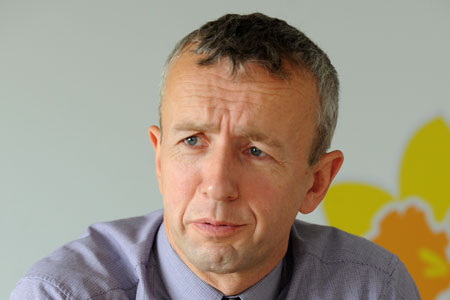Annual DVLA licence checks are carried out on company vehicle drivers and their spouses; the profile of the employee base, with drivers typically in their 50s and 60s, means around a third of them has fewer than three points on their licence.
Sothcott’s next project is to look at driver training. However, he has to carefully weigh up expenditure against likely savings; the more he spends, the less money the charity has for its core causes.
“We are initially rolling out online risk assessment for a sample of 40 drivers. If it shows that we have a problem we will roll it out to everyone,” he says.
“But if it shows that we don’t, which I don’t think we do, then we might be able to save the money and not roll it out.”
Sothcott’s confidence comes from the low licence points, low accident rate and low end-of-contract damage charges.
He has already reduced the cost of the training after the charity’s insurer agreed to front half the money if Marie Curie paid for the rest.
“There’s no way we could spend £200 per driver to go to an instructor for a day; only if a driver has a very bad record.”
He’s sceptical about the benefits of broad brush training, anyway. “I ran driver training at McDonalds. It was very expensive and while we saw a slight reduction in accidents it was nothing spectacular.
“There are a lot of companies doing the hard sell on one-to-one driver training but I don’t see huge benefits.
“We will do it more cheaply and see whether risk assessments throw up anything obvious to tackle for certain individuals.”
Whether it’s safety, the environment or general management, for the Marie Curie fleet all roads lead back to cost.
'Cost, cost, cost' mantra
Jeremy Sothcott joined Marie Curie as fleet manager five years ago after an 11-year fleet career at McDonalds during which he saw the fleet shrink from around 1,400 to just a few hundred as the company car policy was replaced by a cash allowance scheme.
He was handed the McDonalds job on the basis that he was interested in cars and has since built up his fleet knowledge from networking, ACFO meetings and publications like Fleet News.
As he says, a lot of companies “don’t take fleet seriously”. Marie Curie is not one of those. As a charity it is fixated on cost and the fleet is a major drain on very limited resources.
Sothcott’s mantra is “cost, cost, cost”, but he is largely left alone to deal with fleet matters.
“I enjoy fleet because it’s something different every day,” he says. “But it’s quite a lonely job because there is no-one else in the company that understands it.
“The only time you can discuss issues is when you are networking with other fleet managers.
“But that suits me. I’m left to my own devices as long as I provide a good service to the business.”
Factfile
Company Marie Curie
Fleet manager Jeremy Sothcott
Fleet size 180 vehicles – 170 cars, 10 LCVs
Funding method cars – contract purchase; vans – contract hire
Replacement cycle cars – four years; vans – up to five years’ mini-buses five years minimum
Average fleet CO2 118g/km (cars and LCVs)

















Login to comment
Comments
No comments have been made yet.